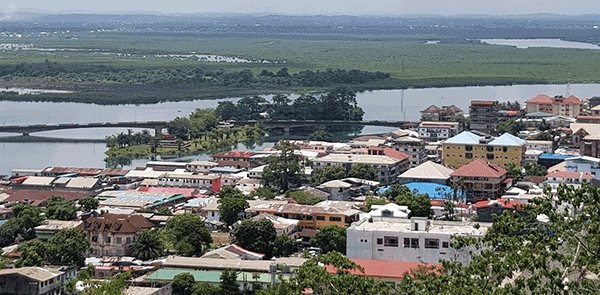|
Monday, March 28 // 1–2:o0 p.m. (ET)
Following President Biden’s visit to Brussels, the Secretary General of the European External Action Service (EEAS) Stefano Sannino joins us for a discussion on the EU response to the Russian invasion, the recently adopted EU Strategic Compass, and the EU-U.S.-NATO partnership to address key global challenges. The discussion will be chaired by Robin Quinville, a senior diplomat and former Chargé d’Affaires at the U.S. Embassy in Berlin.

Monday, March 28 // 2:30–4:00 p.m. (ET)
To address the great nuance underlying women's access to healthcare in Mexico, we convene a panel of experts that will address the current state of the problem, its differential impacts between rural and urban and indigenous communities, and the areas for improvement. The discussion will be held in Spanish with simultaneous translation to English.

Monday, March 28 // 4–5:30 p.m. (ET)
Conflicts over the paths traveled by grain transformed the balance of world power. Early in the nineteenth century, imperial Russia fed Europe through the port of Odessa. But during the U.S. Civil War, America created grain corridors to feed Union troops, facilitating postwar exports. As these exports flooded across the Atlantic, European food prices plummeted. Cheap foreign grain helped spur the rise of Germany and Italy, the decline of the Habsburgs and the Ottomans, and Europe’s scramble for empire. Contests over this foreign grain contributed to World War I and the Russian Revolution.

Tuesday, March 29 // 10–11:30 a.m. (ET)
The Duma passed a law criminalizing the distribution of “false information” about the Russian army. Roskomnadzor blocked access to both foreign and domestic media websites, and drove most sources of Russian independent journalism into exile. What will be the costs of Russia’s new age of digital censorship? Join us for a discussion of how this crackdown affects Russian journalists and private citizens, the political and social factors that enabled it, and the possibility of a truly sovereign Russian internet.

Wednesday, March 30 // 1–2:30 p.m. (ET)
Transboundary water governance plays a critical role in the security and cooperation dynamics in many regions. This event will analyze the key security challenges in transboundary river basins, including the Eastern Nile Basin, a sub-basin of the larger Nile Basin, which includes 11 countries that share the Nile’s waters.

Thursday, March 31 // 9–10:30 a.m. (ET)
There are numerous challenges to restoring justice and building sustainable peace in post-conflict environments. Traditional African justice institutions, which are reflective of indigenous values and notions of justice, are a crucial yet often underutilized and underappreciated tool in the peacebuilding toolbox, both for local, national, and international actors. This event will explore ways for African, U.S., and international actors to better engage with traditional justice institutions to bolster peacebuilding efforts across the continent.

Thursday, March 31 // 4–5:00 p.m. (ET)
How and why have U.S. allies and partners in the Indo-Pacific responded the way that they have to the Russian invasion of Ukraine? What are the implications for their relations with the United States? Join the Asia Program’s experts as they explore these questions and more.

|





